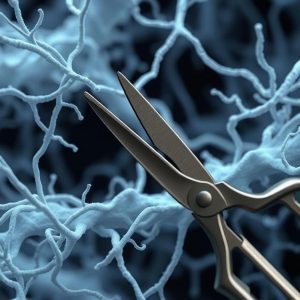 John Crocker and Andrea Liu, University of Pennsylvania
John Crocker and Andrea Liu, University of Pennsylvania
Outcomes: Researchers John Crocker and Andrew Liu at the University of Pennsylvania have discovered that biopolymer networks pruned by tension-inhibited methods remain rigid at much lower coordinations than those pruned randomly. This finding helps explain the evolutionary advantage of tension-inhibited filament-severing proteins in biological systems.
Impact and Benefits: This research provides insights into the mechanics of biopolymer networks, such as the actomyosin cortex and collagen extracellular matrix, which are crucial for maintaining cellular and tissue rigidity under dynamic mechanical stresses. The results could lead to advancements in biomedical engineering and materials science, potentially benefiting medical treatments and the development of new materials.
Explanation: Biopolymer networks display high rigidity and tensile stress despite having coordinations below the normal threshold for mechanical rigidity. The study shows that networks pruned by tension-inhibited methods achieve cortex-like stiffness for biologically relevant tensile stresses and filament tensions, unlike randomly pruned networks. This selective pruning method leads to networks with significantly higher shear modulus and lower critical coordination, making them more efficient and robust.
Cunha, M. A. G., Crocker, J. C. and Liu, A. J., Building rigid networks with prestress and selective pruning. Physical Review Research 6 (4), 6 (2024) 10.1103/PhysRevResearch.6.L042020
